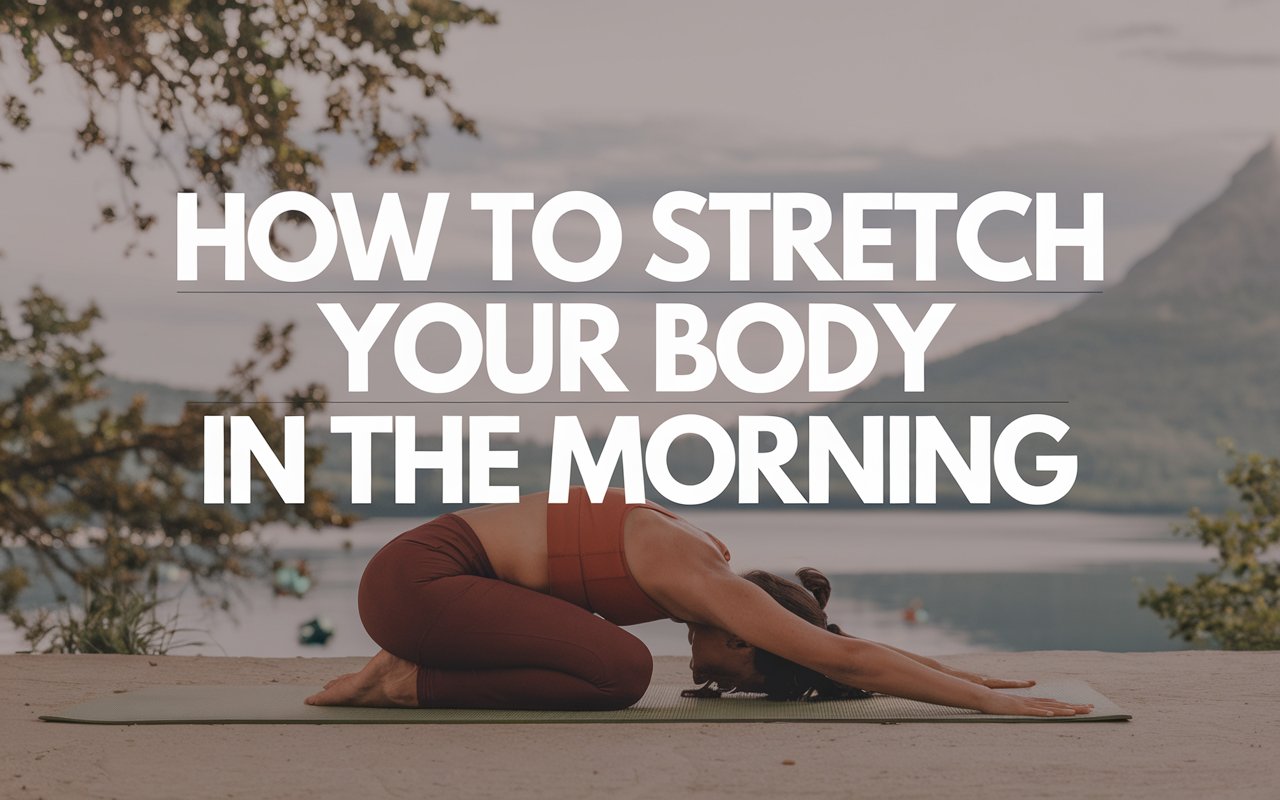A morning body stretch helps wake up your muscles, improve flexibility, and boost circulation. Simple stretches like overhead reach, side stretches, and child’s pose can energize your body quickly.
Starting your day with a good stretch can make a big difference. A morning body stretch wakes up your muscles and joints, getting them ready for the day.
Stretching increases blood flow, which helps your body feel more awake and refreshed. You don’t need to be an expert to start—simple morning stretches can be done by anyone, and they only take a few minutes.
A morning stretch routine helps improve flexibility over time. Stretching can also help reduce tension, making you feel calmer and more focused throughout the day.
Let’s explore how you can add stretching to your morning routine and the benefits it offers.
Read More About Productivity Hacks
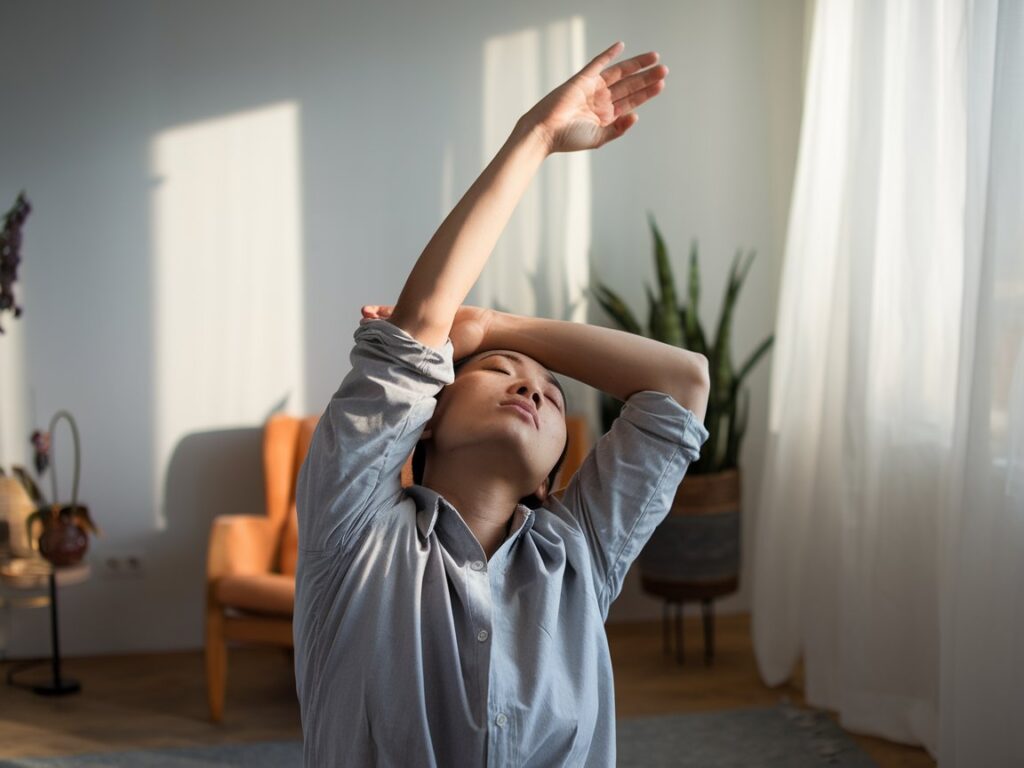
1. Why You Should Stretch Every Morning
When you sleep, your body stays in one position for hours, which can cause stiffness. Stretching in the morning loosens tight muscles and helps your joints move more freely.
A morning body stretch improves blood circulation, sending oxygen to your muscles. This helps you feel more energized and less sluggish.
Stretching regularly also improves flexibility, which makes daily movements easier. It helps prevent injuries by keeping your muscles and joints in good condition.
People who stretch in the morning often report feeling less tension throughout the day. Mentally, stretching helps reduce stress, clears your mind, and prepares you for the tasks ahead.
Read More: How to Meditate for 5 Minutes Every Morning
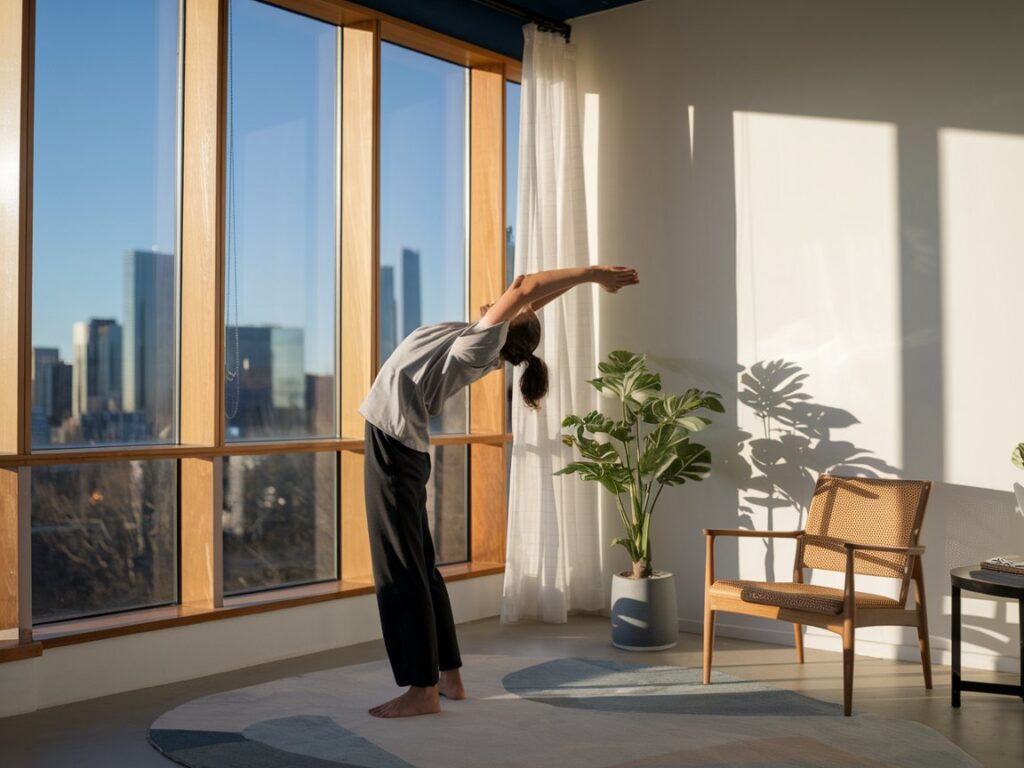
2. How to Start a Morning Stretching Routine
Starting a stretch routine is simple. Begin by moving your muscles gently to activate them. The goal is to ease into it without pushing too hard.
Over time, you’ll notice your body feeling more flexible and less tense. It’s important to stretch consistently, even if it’s just for five minutes each morning.
You don’t need any special equipment to get started. Focus on simple morning stretches that target your main muscle groups. As your body adapts, you can gradually increase the intensity of your stretches.
Read More: Drink Water First Thing in the Morning
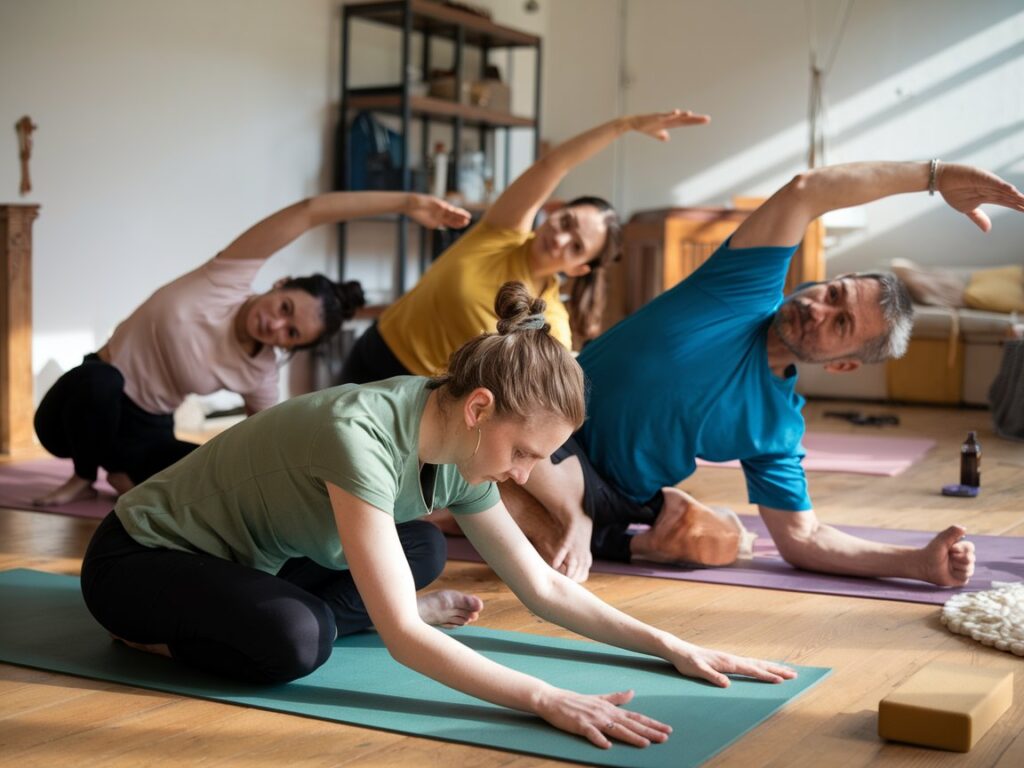
3. Easy Stretches to Include in Your Routine
If you’re new to stretching, there are several easy stretches you can do in the morning. These movements will help wake up your body without putting too much strain on your muscles.
Standing Reach
Stand up straight with your feet shoulder-width apart. Slowly raise your arms over your head and reach as high as possible. This simple movement stretches your spine, shoulders, and arms, helping to wake up your upper body.
Knee-to-Chest Stretch
While lying on your back, bring one knee up towards your chest, holding it briefly before switching to the other side. This stretch helps loosen your lower back and hips.
Cat-Cow Pose
Get on your hands and knees. Slowly arch your back, then round it like a cat. This movement helps with spinal flexibility and is great for relieving back stiffness.
Side Stretch
Stand with your feet hip-width apart. Extend one arm above your head and tilt your body in the opposite direction, holding for a few moments before alternating. This stretch targets the muscles along the sides of your body and helps with mobility.
Child’s Pose
Kneel down and sit back on your heels. Reach your arms forward as you lower your head and chest toward the ground. This relaxing pose stretches your back, hips, and thighs, providing a gentle release for tight muscles.
Read More: Wake Up Early Naturally Without an Alarm
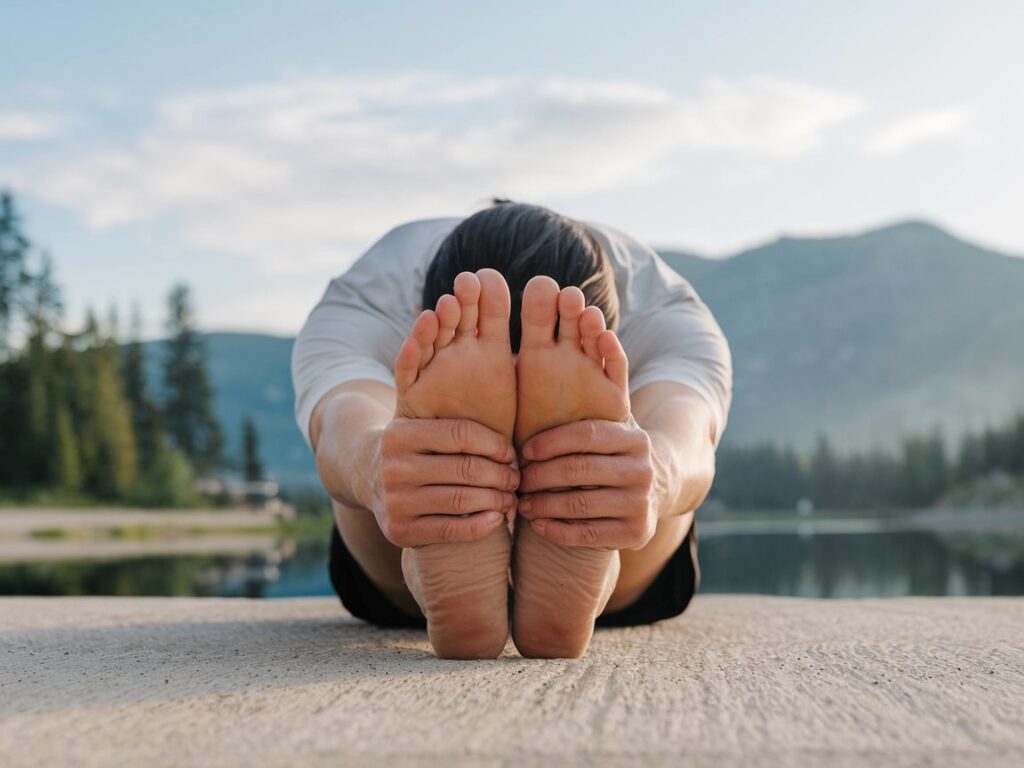
4. How Stretching Improves Flexibility
Flexibility allows your muscles and joints to go through their entire movement range.
When you’re flexible, everyday activities become easier and you’re less likely to get injured. Stretching in the morning helps maintain and improve flexibility over time.
As you stretch, your muscles lengthen, and your joints become more mobile. Regular stretching keeps your body in good condition, reducing stiffness and tension. Even if you start with limited flexibility, stretching consistently will lead to noticeable improvements.
Being flexible also improves your posture and balance. It can help reduce the risk of developing aches and pains in your muscles, especially if you sit for long periods throughout the day.
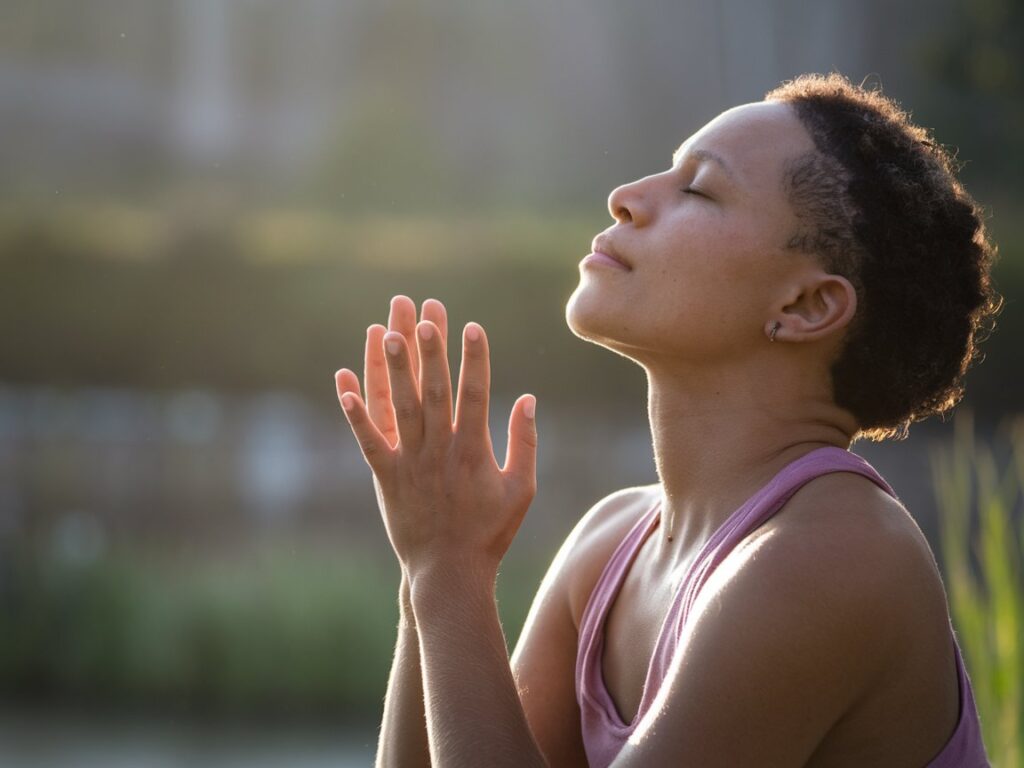
5. Why Breathing Matters During Stretching
Breathing deeply is essential during a morning body stretch. When you focus on your breath, it helps your body relax and allows your muscles to stretch more effectively.
Inhale slowly as you prepare to stretch, then exhale as you move deeper into the stretch.
Mindful breathing not only improves the physical benefits of stretching but also calms your mind.
It turns your stretching routine into a peaceful, meditative moment. By focusing on your breath, you can reduce stress and feel more grounded.
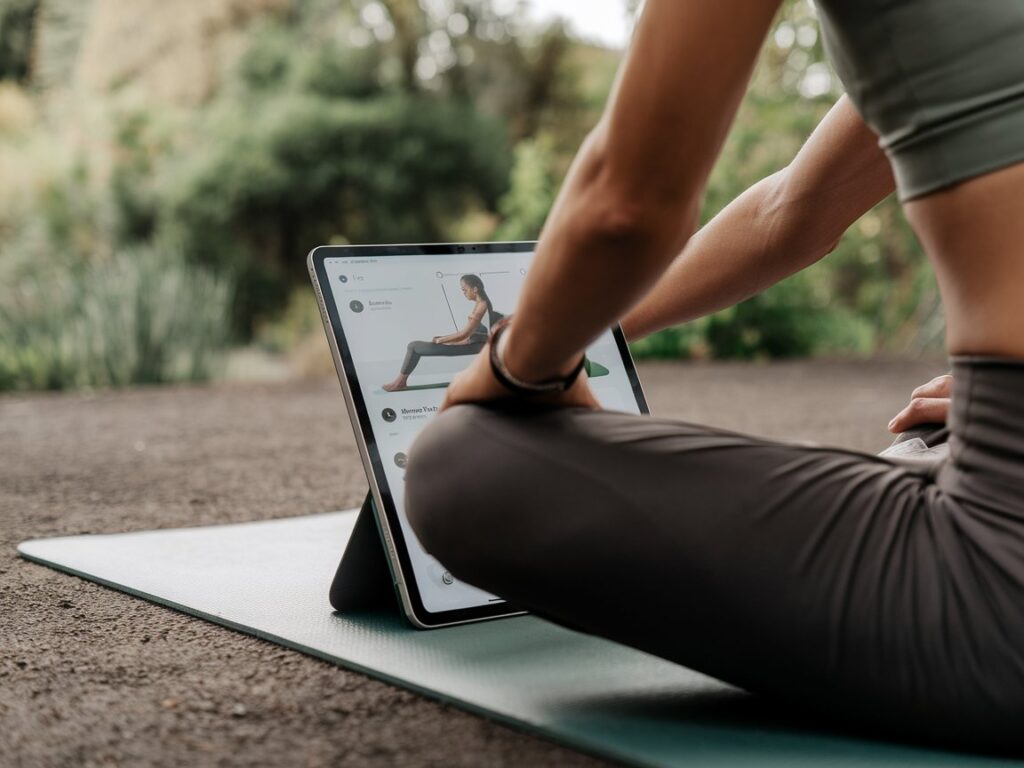
6. Tips for an Effective Stretch Routine
Here are some tips to help you get the most out of your morning stretching:
Start Small
Begin with easy stretches, especially if you’re just waking up. You don’t need to stretch intensely right away—your muscles need time to warm up.
Be Consistent
Try to stretch every morning. Even a few minutes of stretching can make a big difference over time. Consistency is the key to improving flexibility and reducing stiffness.
Listen to Your Body
Stretching should never be painful. If a stretch feels uncomfortable, ease up. Stretching should feel good, not forceful.
Breathe Deeply
Ensure you breathe deeply and steadily during each stretch. This helps your body relax and makes each stretch more effective.
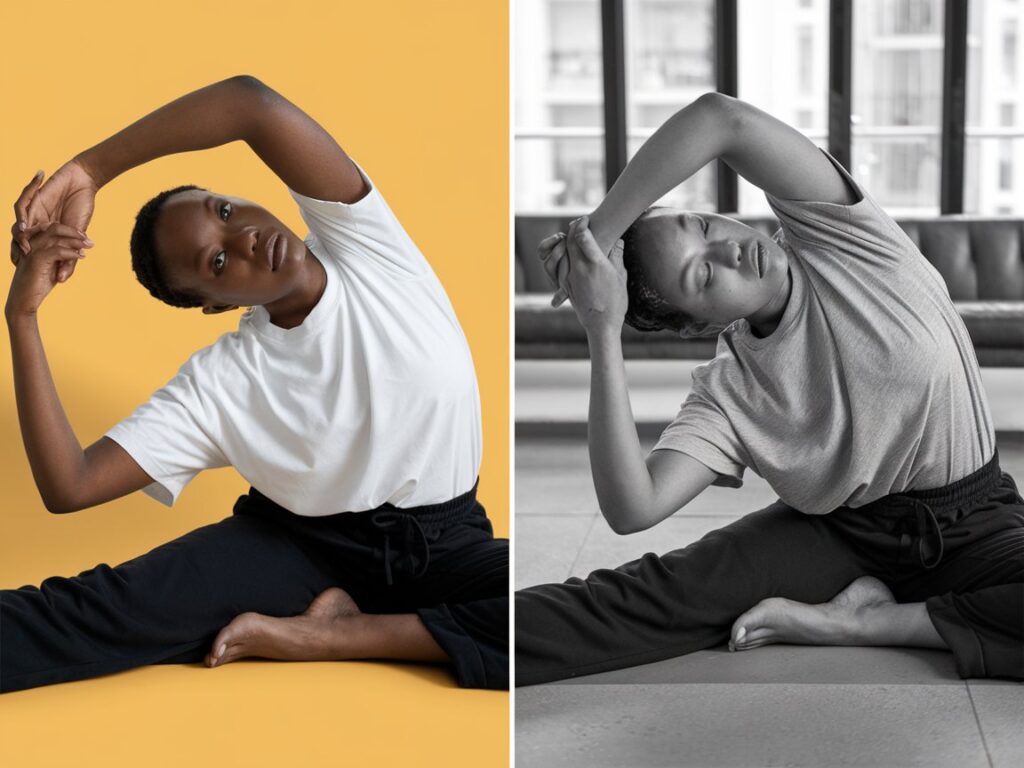
7. Avoid These Stretching Mistakes
Although stretching is simple, there are some common mistakes to avoid:
Skipping the Warm-Up
Jumping into intense stretches without warming up can lead to injury. Always start with gentle movements to prepare your body.
Holding Your Breath
Remember to breathe throughout each stretch. Holding your breath can make it harder for your muscles to relax.
Pushing Too Hard
Stretching should never cause pain. You should feel a gentle pull, but don’t force your body into uncomfortable positions.
Stretching Too Quickly
Hold each stretch for at least 15-30 seconds. Stretching too quickly won’t give your muscles enough time to fully relax and lengthen.
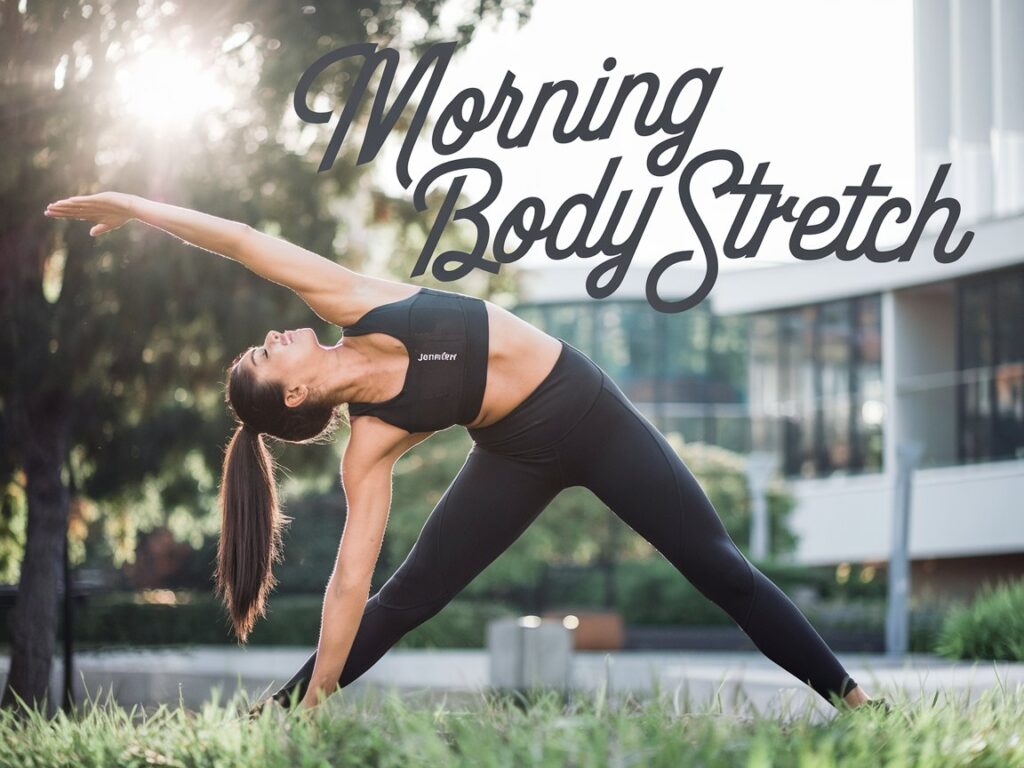
FAQs About Morning Body Stretch
Key Takeaways
- A morning body stretch helps energize your muscles and joints.
- Regular stretching increases flexibility and reduces stiffness.
- Morning stretches can improve mood and mental clarity.
Incorporating a morning body stretch into your routine can make a big difference in how you feel throughout the day. Not only does it help wake up your muscles, but it also improves flexibility and reduces stiffness.
By focusing on gentle movements and mindful breathing, you can start your day feeling more relaxed and energized.
Keep your routine simple and consistent, and over time, you’ll notice the benefits of improved flexibility and reduced tension in your body. Stretching in the morning is a small habit with big rewards.
